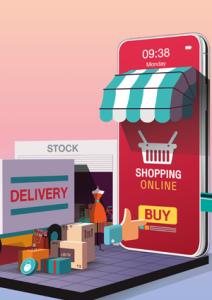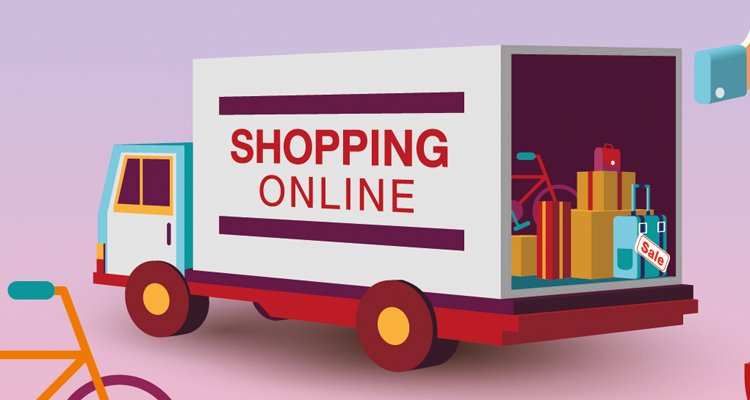Why sustainable home delivery is a win-win for consumers and retailers alike. By Chris Jones
Two seemingly conflicting trends are coming together that, if addressed correctly, could provide retailers with a competitive advantage and make them more profitable. First, consumers are increasingly concerned about the environment and are more willing than ever to act to protect it. Second, the pandemic kicked online buying and home delivery into ‘high gear’ as many consumers embraced its convenience and dramatically expanded the scope of their online purchasing.

So, how can these two trends be mutually beneficial? Isn’t home delivery supposed to be the antithesis of sustainability? Since neither trend is going away, harnessing both represents an excellent opportunity for retailers to improve their competitive position and profitability while helping the environment.
That’s exactly what the recent study ‘Retailers: Sustainability is Not a Challenge, It’s an Opportunity’ concluded. Conducted by Descartes and SAPIO Research, the study surveyed over 8,000 consumers in Europe and North America for their perspectives on retailers’ sustainability practices around delivery operations. Here are five points that paint a compelling picture of why retailers need to adjust their delivery practices to take advantage of consumer environmental concerns.
1. Consumers are making purchasing decisions based upon environmental impact.
The study found that overall, 39 percent of consumers do consider the environmental impact of a product and company when making purchasing decisions. This number rises to 42 percent for respondents aged 25 to 34. Interestingly, only 11 percent said they never made a purchasing decision based upon the environment.
2. There’s plenty of room to differentiate with sustainable delivery.
The study found that only 38 percent of consumers thought retailers were doing a good job of using sustainable delivery practices. This means that consumers are paying attention to retailer delivery practices and many retailers are not performing well in this area. In the case of grocery and apparel purchases, 40 percent and 39 percent respectively said that they would buy more from those retailers whose delivery practices were more sustainable than the competition.
3. Consumers want sustainable delivery options.
Half of the respondents were quite/very interested in environmentally friendly delivery options. Even more (54 percent) said that they would be willing to accept longer lead times for environmentally friendly deliveries.
4. Consumers are more flexible than retailers think.
Half of the respondents thought the ability to combine orders was quite/very important. Almost half (48 percent) said that they were quite/very interested in having retailers recommend the most environmentally friendly delivery option. In fact, three of the top four options involved combining orders or having the retailer select the most sustainable delivery option.
5. Sustainable home delivery options result in lower costs to the retailer.

Options from increasing lead times to grouping orders to providing eco-friendly time windows help retailers lower both their carbon footprint and their delivery costs. Longer lead times decrease delivery costs through better delivery planning and mode selection. Order
consolidation means fewer trips to the customer and higher delivery density. Eco-friendly deliveries also create greater delivery density, which reduces distance per delivery. These concepts apply to multiple delivery modes including private/dedicated fleet, LTL and parcel.
Instead of thinking that sustainable home delivery is a challenge, retailers need to see it for the opportunity it presents. It is clear that consumers are increasingly interested in more sustainable home delivery. These trends are an opportunity to create a win-win-win situation. Sustainable home delivery makes consumers happier and more loyal, lowers delivery costs and helps the environment. Not every consumer will care, but the numbers are significant enough to easily justify offering sustainable delivery options. Better for the environment is better for your business. What are your sustainable delivery strategies?
For a list of the sources used in this article, please contact the editor.
Chris Jones is EVP, Descartes, the global leader in providing on-demand, software-as-a-service solutions focused on improving the productivity, performance and security of logistics-intensive businesses. Customers use its modular, software-as-a-service solutions to route, schedule, track and measure delivery resources; plan, allocate and execute shipments; rate, audit and pay transportation invoices; access global trade data; file customs and security documents for imports and exports; and complete numerous other logistics processes by participating in the world’s largest, collaborative multimodal logistics community.
